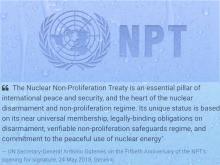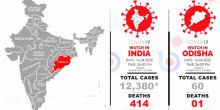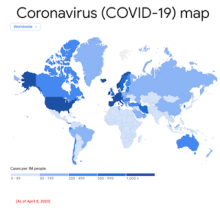-

Post COVID-19 sustainable urban planning depends on how cycling as an urban mobility component is being prioritised.
-

Developing a vaccine is a serious job. Post the outbreak of Covid-19, many agencies in the world have started working towards the development of a vaccine to stop the spread of Coronavirus. At present, the usable vaccine is still a few months or a year away. As per the World Health Organisation (WHO), currently around 60 vaccine candidates are in the pre-clinical trial stage. For any vaccine to reach the stage of public distribution, normally takes around 12 to 18 months. It is expected that by January/February 2021, the Covid-19 vaccine could become available.
-

This year marks the golden jubilee of the Treaty on the Non-Proliferation of Nuclear Weapons (NPT) and the silver jubilee of its indefinite extension. Legally binding in nature, this Treaty is often regarded as the bedrock of the global nuclear non-proliferation regime. Apart from the non-proliferation efforts, the Treaty advocates disarmament and peaceful use of nuclear energy. It recognizes five nuclear states (N5 states) namely the United States, Russia, the United Kingdom, France, and China.
-

Just within a few weeks since the Covid-19 virus started spreading from Wuhan, China, in December 2019, it was declared a global pandemic by the World Health Organisation (WHO), consequently affecting lives in 204 countries in varying degrees – some low, others moderate while about a dozen countries seriously affected. Within a span of two weeks, the total positive cases globally have seen 350 per cent increase to touch 2.3 million with death counts crossing 1,50,000 as of April 15, 2020.
-

Ever since the first Corona infected case was reported on February 23 in Sindh province of Pakistan and its spread to the other regions - Islamabad, Gilgit-Baltistan (GB) and Pakistan occupied Kashmir (PoK), the authorities asked for army’s help to contain the spread of the virus. Instead of getting the virus directly from China, Pakistan got the infection when thousands of Pakistani pilgrims and businessmen returned from Iranian cities -- Mashhad and Qom, where the shrine of Imam Reza is located.
-

A few days back in a startling incident, some unknown persons placed an advertisement on a global online marketplace for the sale of the Statue of Unity located at Sardar Sarovar Dam, Gujarat. He/she quoted the price of the ‘monument’ at Rs 30,000 crore and claimed that the money would be used to meet the requirement of hospitals and buy healthcare equipment to handle the Covid-19 crisis. Obviously, this is an act of stupidity and needs to be condemned. An FIR has already been lodged for cheating and forgery case; it is illegal to put on sale a public property.
-

The Cruise Ship Industry around the world has been significantly affected by the spread of Coronavirus or infamous now as Covid – 19. Luxury cruise ships are more vulnerable to infectious diseases, as it brings diverse populations into close proximity, for an extended period of the sea voyage. There is a risk of spreading the disease beyond voyages also, for which aggressive efforts and safety measures are required to be implemented to contain the spread.
-

In the midst of a national lockdown and steady rise in a number of cases diagnosed with Coronavirus infection, Central and State governments have issued a number of guidelines and advisories to better manage the ongoing COVID-19 induced disaster. A key challenge confronting society is how to deal with the increasing social stigma being attached to the disease. A number of cases are emerging from across the country, reporting social ostracization. Such instances are expected to rise further as the infection spreads from various cities to the rural country-side.
-

The world is at present witnessing one of the most difficult periods in its modern history. It is facing COVID-19 pandemic that has no medical solution in sight yet. Thousands of people are dying and many more are expected to succumb to the coronavirus in days and months to come. Obviously, all efforts are ongoing to save the world from any eventual catastrophe. Apart from undertaking passive measures like social distancing, which helps to break the chain of human transmission of the virus, scientists are trying their best to find an appropriate medicine/vaccine to fight COVID-19.
-

As long as a human community, as a whole, does not get out of the ‘syndrome’ of reacting and preparing for yesterday’s threats, the world would never remain prepared to address the threats like the pandemics. The field of warfare tells us that humans draw lessons from past wars in order to prepare for future wars without realizing that the face of future wars may not be the same that they have experienced in the past. In very broad terms, there are two main categories of threats, called natural and human-induced.
Paxton ported to drupal by DropThemes.in